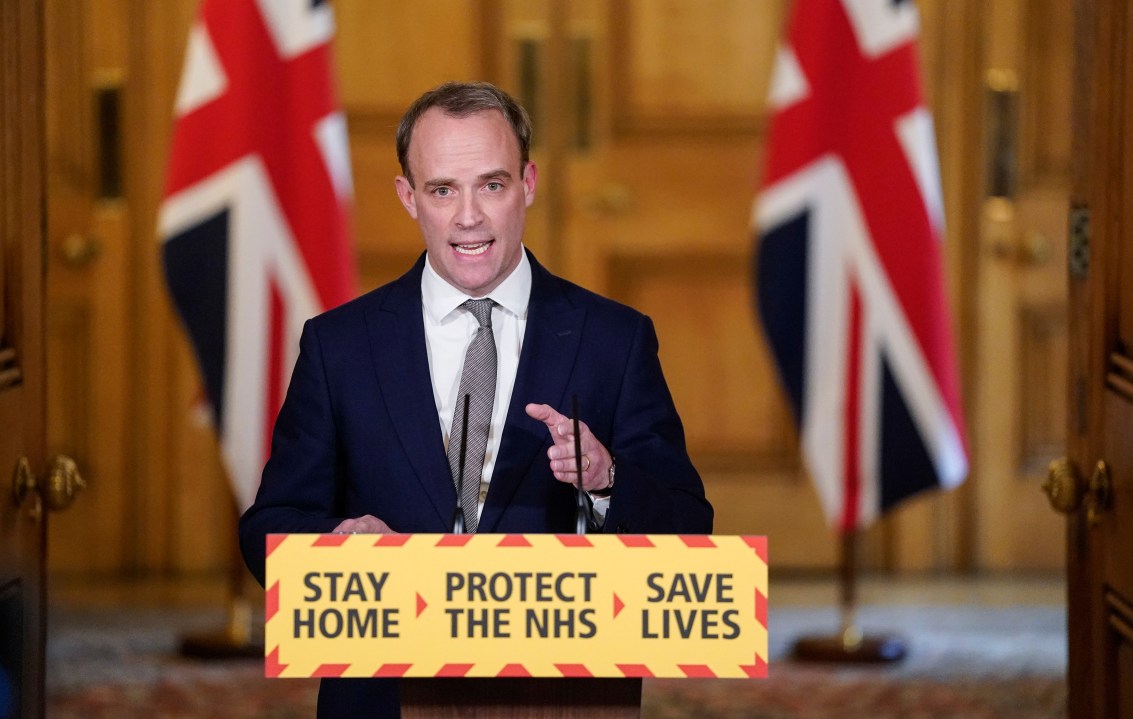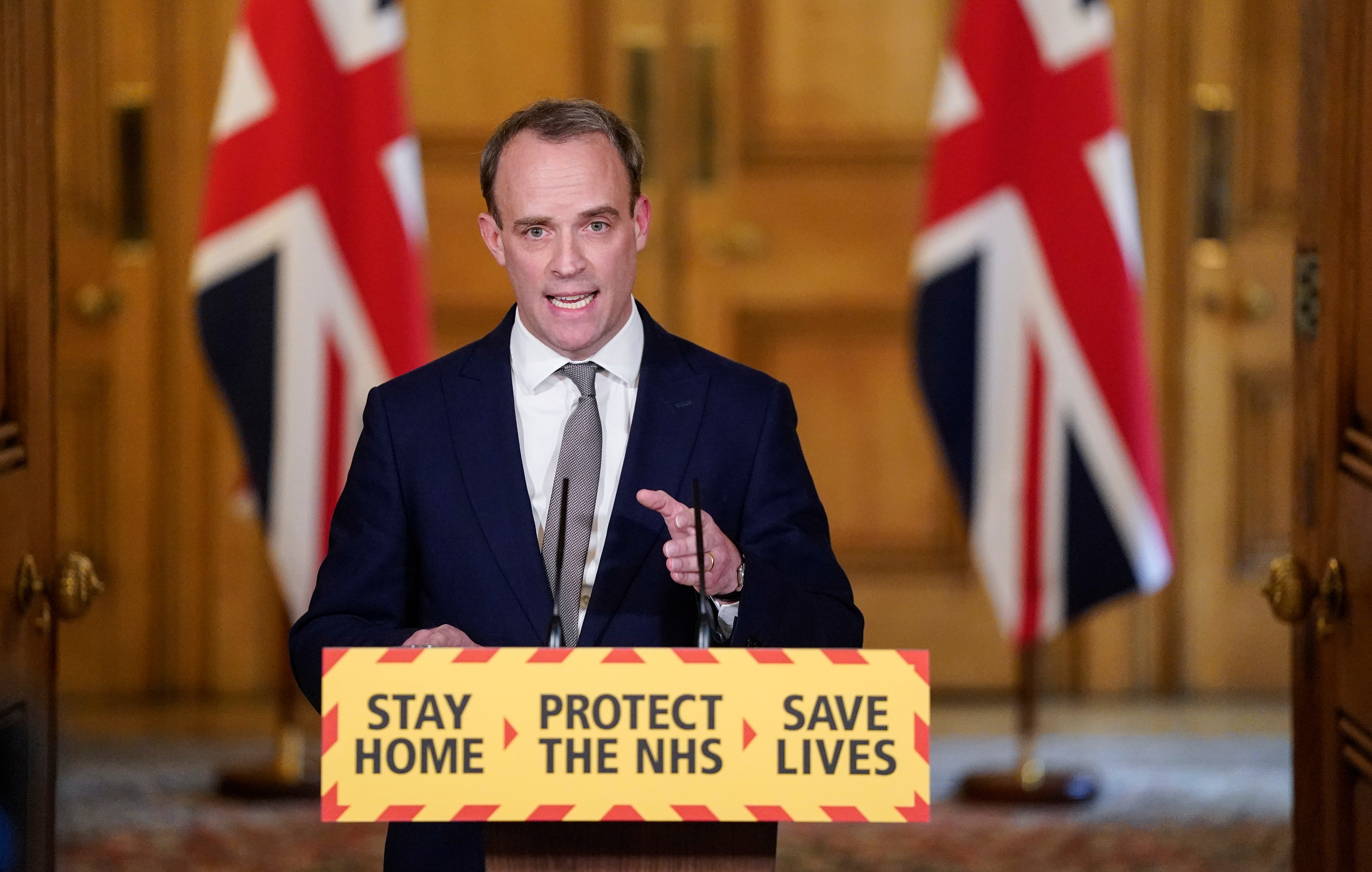Dominic Raab has this evening confirmed that there will a lockdown extension of three weeks. The First Secretary of State said that while there had been encouraging signs that the rate of infection had significantly reduced, it was still too early to break away from any lockdown measures. He said the most dangerous thing for both public health and the economy would be a second wave of coronavirus infections.
While the government line remains that ministers will not publicly discuss an exit strategy on the grounds that it distracts from the current social distancing measure, Raab went the furthest he has in addressing the issue. The Foreign Secretary set out the criteria that would have to be met for any lockdown easing:
1) Evidence that the NHS can cope across the UK
2) A sustained fall in daily death rates
3) Evidence that the rate of infection is decreasing
4) Confidence that supplies of testing and PPE are able to meet demand
5) No risk of a second peak
While No. 1-3 may be feasible within three weeks, the latter two are more vague and could be difficult to meet. Raab used the term ‘adjusting’ when discussing changes to the lockdown. This serves as another reminder that no one in government expects a return to normality anytime soon, instead it will likely be a slow process. What’s making life a little easier for ministers at the moment is the level of public support for the lockdown – a YouGov poll today found 91 per cent of Brits say they support extending the coronavirus lockdown measures for a further three weeks and 67 per cent say that strongly support it. But that doesn’t mean the pressure is off – public opinion can change very quickly and several key cabinet ministers believe that when we get to the end of this extension, there will need to be some easing. The hope in government is that the Prime Minister is well enough by this point to play a role in the process








Comments